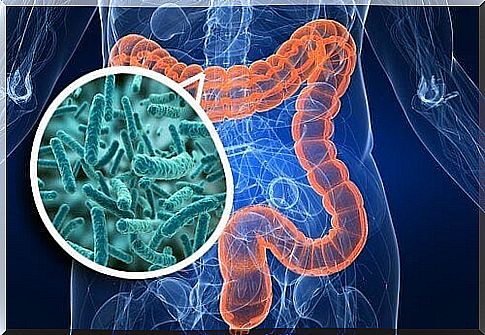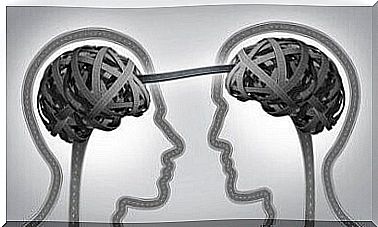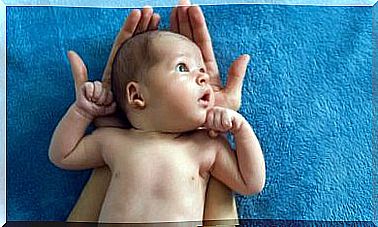The Microbiota In Addictions

Addictions are a very difficult type of disorder to treat because of the multitude of factors that influence them. This is why research on their mechanisms and possible treatments is not stopping. Today, we know a lot about the mechanisms that produce them. Despite everything, we are seeing very interesting results appear which can be very important, such as the role of the microbiota in abstinence.
The microbiota is the collection of microbes found in the mouth, vagina, skin or intestines. This bodily ecosystem has already been linked to other pathologies such as autism, Parkinson’s, anxiety or schizophrenia. And, apparently, it would also contribute to the development of addictions.
The brain-gut axis

We currently know that the digestive tract benefits from its own nervous system: the enteric nervous system. It is made up of more than 500 million neurons. It communicates with the central nervous system (CNS) helping the brain to function and balance.
Communication between these two systems is dynamic and two-way. This means that the microbiota can modify the neuronal activity of the brain and vice versa. However, the influence is not direct because the brain is protected by the blood-brain barrier. Thus, intestinal neurotransmitters would act through the cells of the intestinal wall. They would lead them to communicate with the central nervous system.
We were able to discover that the enteric nervous system was able to produce a large part of the neurotransmitters that we benefit from, such as dopamine, GABA or serotonin.
Addictions and microbiota
Addiction to substances is due to the fact that they activate the brain’s reward center, stimulating the secretion of neurotransmitters, and especially dopamine. This produces a very pleasant sensation which the brain gets used to very quickly, eventually asking for more and more doses or more of it.
As previously indicated, it is currently known that the enteric nervous system also produces neurotransmitters such as dopamine. We also know that, when the microbiota is not balanced, it is linked to the appearance of pathologies. This is why we have put this ecosystem in the spotlight of addictions, with very striking results.
Microbiota and alcoholism

In 2014, we published a study that analyzed the relationship between gut bacteria and alcohol addiction. To do this, we looked at whether there was an alteration in the intestinal permeability and microbiota of people suffering from alcoholism, and whether this was linked to symptoms of dependence.
It was then found that people who developed Leaky Gut Syndrome, which produces increased gut permeability, had higher levels of anxiety and more intense abstinence syndrome.
In addition, the composition of the microbiota, as well as its activity, were altered. The researchers concluded that the microbiota played an important role in alcohol addiction, and more specifically in the risk of relapse.
Food addiction
We also studied the relationship between food addiction and the microbiota by analyzing the stools of healthy people, their BMI and brain images. For this, we focused on the metabolites, which occur because of the breakdown of tryptophan. It is an amino acid that is found in many foods. After degrading, it turns into serotonin, thus influencing mood and behavior.
This process has two implications. On the one hand, tryptophan, once it has been broken down by intestinal bacteria, is eliminated through the stool. On the other hand, when broken down, tryptophan turns into indole, a metabolite involved in the gut-brain axis.
We were thus able to discover that indole is linked to a greater level of obesity and to more uncontrollable ingestions, probably due to its influence on the reward system, and more specifically with circuits linked to the cerebral amygdala. .
What treatments could there be?
These findings provide a different perspective on addictions, as well as possible new treatments. We should therefore hope that by restoring the balance of the intestinal flora, we can solve certain key aspects of addictions.
Some researchers propose, for example, to intervene on intestinal hormones. Others, on the other hand, offer treatments which, even if they are simple and used in Chinese medicine, can be very interesting.
This is the case with the transplantation of fecal microbiota. This process would consist, to put it simply, in transplanting stool. O n and administer microorganisms from a healthy donor into the intestine of a recipient patient.
So far, the effectiveness of this treatment has only been proven for recurrent colitis. Its application to other pathologies is, for the moment, only an idea. However, we continue to study the role of the microbiota in addiction and other diseases, in the hope of finding new ways of treatment.









